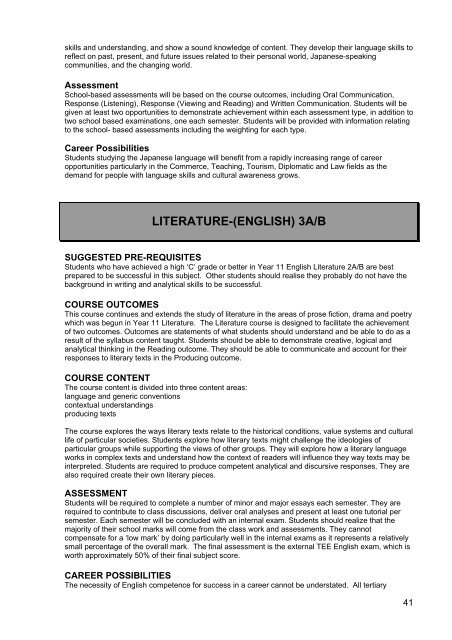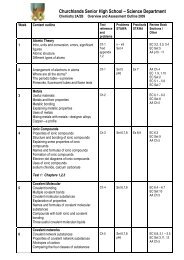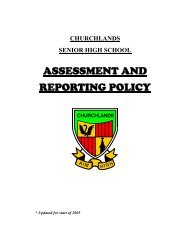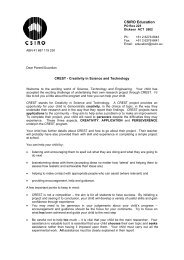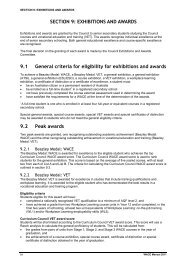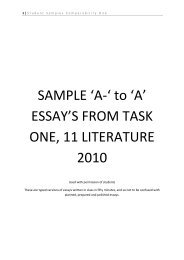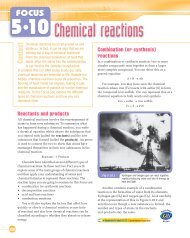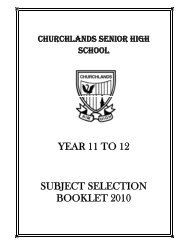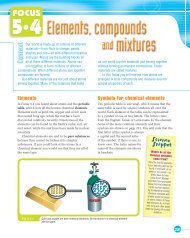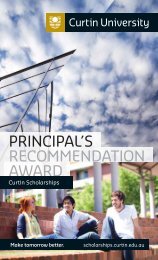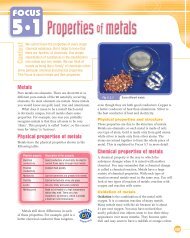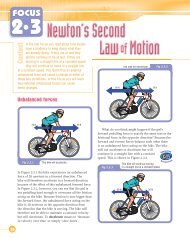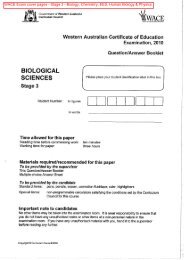3a/3b - Churchlands Senior High School
3a/3b - Churchlands Senior High School
3a/3b - Churchlands Senior High School
Create successful ePaper yourself
Turn your PDF publications into a flip-book with our unique Google optimized e-Paper software.
skills and understanding, and show a sound knowledge of content. They develop their language skills toreflect on past, present, and future issues related to their personal world, Japanese-speakingcommunities, and the changing world.Assessment<strong>School</strong>-based assessments will be based on the course outcomes, including Oral Communication,Response (Listening), Response (Viewing and Reading) and Written Communication. Students will begiven at least two opportunities to demonstrate achievement within each assessment type, in addition totwo school based examinations, one each semester. Students will be provided with information relatingto the school- based assessments including the weighting for each type.Career PossibilitiesStudents studying the Japanese language will benefit from a rapidly increasing range of careeropportunities particularly in the Commerce, Teaching, Tourism, Diplomatic and Law fields as thedemand for people with language skills and cultural awareness grows.LITERATURE-(ENGLISH) 3A/BSUGGESTED PRE-REQUISITESStudents who have achieved a high ‘C’ grade or better in Year 11 English Literature 2A/B are bestprepared to be successful in this subject. Other students should realise they probably do not have thebackground in writing and analytical skills to be successful.COURSE OUTCOMESThis course continues and extends the study of literature in the areas of prose fiction, drama and poetrywhich was begun in Year 11 Literature. The Literature course is designed to facilitate the achievementof two outcomes. Outcomes are statements of what students should understand and be able to do as aresult of the syllabus content taught. Students should be able to demonstrate creative, logical andanalytical thinking in the Reading outcome. They should be able to communicate and account for theirresponses to literary texts in the Producing outcome.COURSE CONTENTThe course content is divided into three content areas:language and generic conventionscontextual understandingsproducing textsThe course explores the ways literary texts relate to the historical conditions, value systems and culturallife of particular societies. Students explore how literary texts might challenge the ideologies ofparticular groups while supporting the views of other groups. They will explore how a literary languageworks in complex texts and understand how the context of readers will influence they way texts may beinterpreted. Students are required to produce competent analytical and discursive responses. They arealso required create their own literary pieces.ASSESSMENTStudents will be required to complete a number of minor and major essays each semester. They arerequired to contribute to class discussions, deliver oral analyses and present at least one tutorial persemester. Each semester will be concluded with an internal exam. Students should realize that themajority of their school marks will come from the class work and assessments. They cannotcompensate for a ‘low mark’ by doing particularly well in the internal exams as it represents a relativelysmall percentage of the overall mark. The final assessment is the external TEE English exam, which isworth approximately 50% of their final subject score.CAREER POSSIBILITIESThe necessity of English competence for success in a career cannot be understated. All tertiary41


